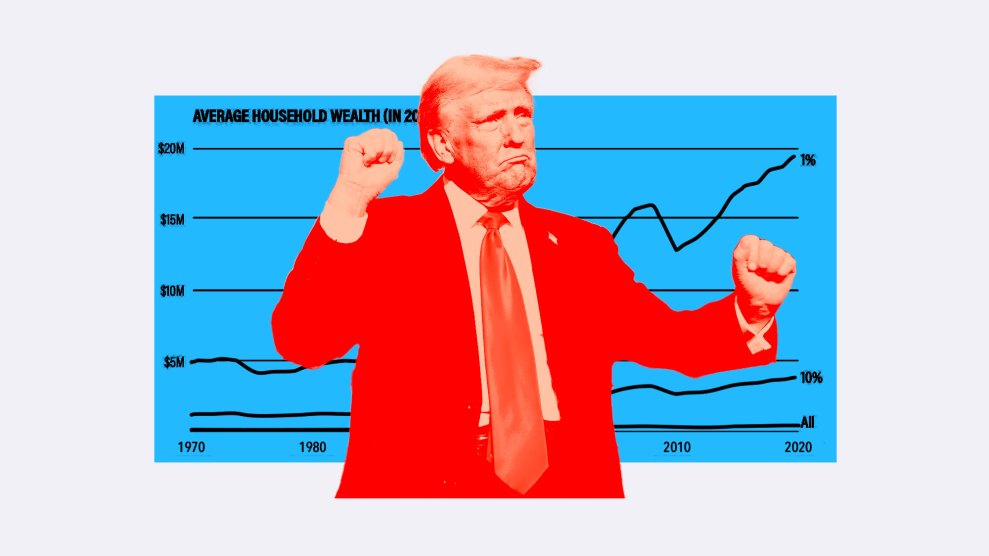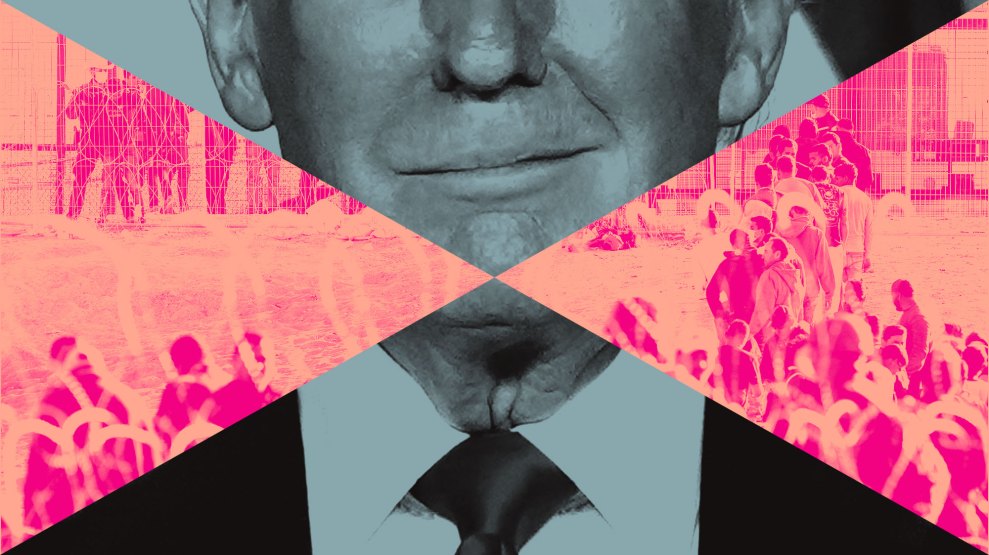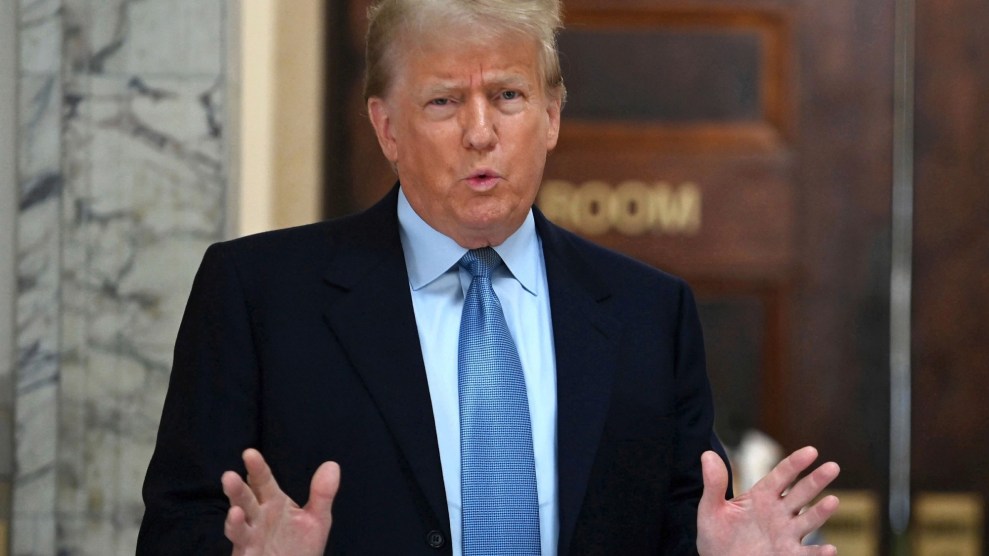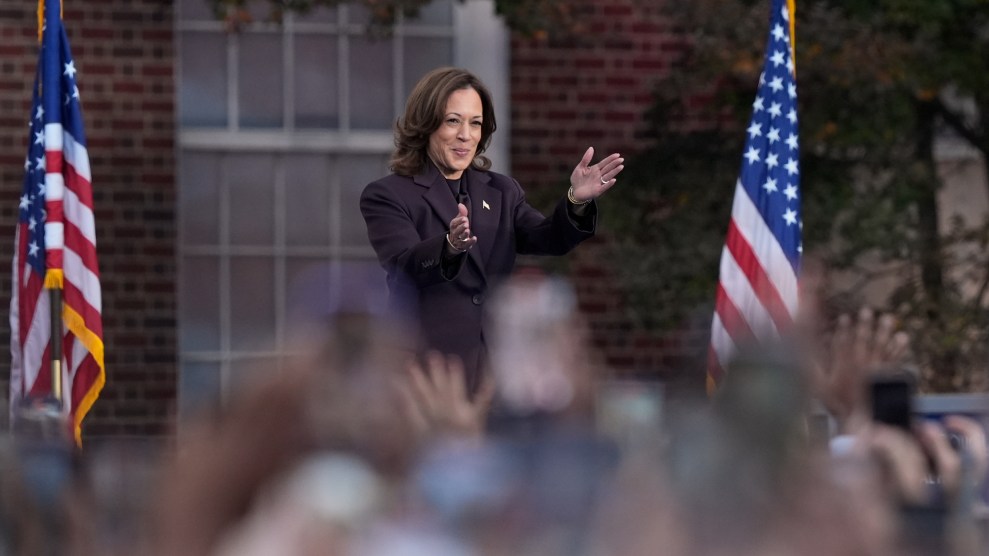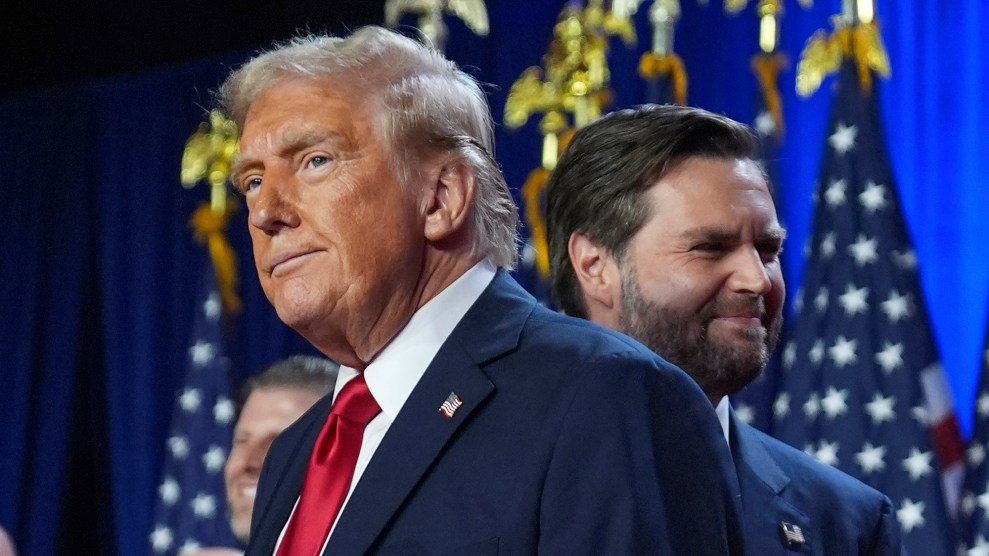On Monday the United States Supreme Court decided to hear two petitions involving 16 prisoners captured in Afghanistan in 2001. The Supremes will determine whether U.S. courts have jurisdiction over the 600 prisoners held — incommunicado — in the Guantanamo Bay naval base in Cuba.
What the court will not do is rule on whether the detentions, as critics claim and as the Bush administration denies, are unconstitutional. But the Justices’ willingness to consider the issue of jurisdiction is a major setback for the Bush administration, which has long argued that the prisoners, being held on the “foreign soil” of Cuba, are beyond the reach of the U.S. legal system, and therefore that questions about their status are “constitutionally committed to the executive branch.” (The base, in Cuba, has been leased to the U.S. since 1903, allowing the U.S. “complete jurisdiction and control” over the specified land.)
The administration offers a further justification for holding the prisoners for an open-ended term that they are “enemy combatants,” not prisoners of war, and consequently ineligible for consideration under the Geneva conventions.
Since the detainees were placed in Guantanamo 18 months ago, the international community, most recently and audibly the Red Cross, has condemned the treatment of the prisoners. Reports have confirmed that the detainees are kept in solitary confinement, have not been formally charged of a crime, and have been denied access to legal counsel. More than 30 detainees are reported to have attempted suicide.
It’s hard to predict how the Supreme Court will rule, or indeed to divine why it decided to take the case. Michael Glennon, a professor at at Tufts University’s Fletcher School of Law and Diplomacy, offered opposing theories to the Washignton Post
“Either a majority of the court feels that the law is so clear that it wants to tell the world in no uncertain terms that President Bush is acting within the law, or four members of the court really do question the outcome in the lower courts and want to give it a good, hard look.”
The lawyers representing the families of 16 detainees — 12 Kuwaitis, two Britons and two Australians — argue that the essential issue is one of constitutional protections. Michael Ratner, the president of the Center for Constitutional Rights, and a lawyer representing the Australian and British detainees, explains:
“One of the most fundamental democratic principles is at risk in this case: whether the Government may detain people without charge and deny them the right to test the legality of their detention in open court. This is a principle that goes back to the Magna Carta. If the Government is permitted to evade all scrutiny by the federal courts, then the most arbitrary type of Executive detention has been sanctioned. This is precisely the issue that the concerned the framers of our Constitution.”
A 1950 decision, Johnson v. Eisentrager, found that federal courts do not hold jurisdiction over military prisoners held outside of U.S. territory. Earlier this year the U.S. Court of Appeals for the D.C. Circuit, cited the Eisentrager case as precedent for ruling in favor of the Bush administration. Opponents of the detentions hold that the government chose to keep the detainees in Guantanamo because of its murky territorial status. In 1993 in Haitian Centers Counsel v. Sale, the Justice Department argued that the Guantanamo base lies outside the jurisdiction of U.S. courts, and as Lizzy Ratner points out in the Nation, outside the guarantees of the American constitution. The court ultimately agreed with the plaintiffs, HIV positive Haitians detained in Guantanamo, and ruled that the detainees must be paroled off the base.
The Guantanamo detentions continue to make headlines worldwide. In a rare criticism of the U.S., the Spanish foreign minister called the detainment a “major error.” On President Bush’s recent trip to Australia he was heckled by a Australian senator upset over the Guantanamo detainees. The American public has made little protest in comparison to its global neighbors, although civil liberties groups have issued criticisms. Some commentators argue that while the Supreme Court decision clearly moves towards addressing these criticisms, others worry that the issue will only rally more anti-American sentiment. Charles Kupchan, a professor of international affairs at Georgetown University, told the Washington Post that the case doesn’t bode well for America’s reputation.
“I think the fact that the Supreme Court decided to take the case will increase anxiety abroad about the way in which the detainees have been treated…There’s been a lot of back-and-forth between the administration and allies on this question of due process and the status of individuals in Guantanamo, and this simply reopens it… That it’s going to the highest court in the land puts the issue back in the spotlight.”
But others, like Laurence Rothenberg, of the Center for Strategic and International Studies, told the Post that shaking up the justice system might be a good thing.
“On the one hand, it might be that people will view this as positive development: `Oh, the rule of law still exists in the US. The Supreme Court will order the administration to give these people access to the courts.’ On the other hand, it may be viewed as the court — which is the same court that installed Bush as president — is going to ratify his administration’s approach.”




